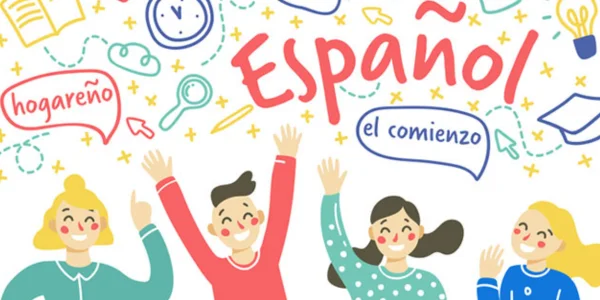Spanish Language Day, celebrated annually on April 23, honors the richness, history, and global significance of the Spanish language. Organized by the United Nations as part of its initiative to promote multilingualism and cultural diversity, the day underscores the importance of Spanish as one of the UN’s six official languages and as a bridge that connects people across continents.
The date was chosen to coincide with the anniversary of the death of Miguel de Cervantes, the famed Spanish writer whose literary masterpiece, Don Quixote, is one of the most significant works in world literature.
This article explores the origins, importance, and celebration of Spanish Language Day, as well as the role Spanish plays in global communication and cultural heritage.
Origins of Spanish Language Day

The United Nations introduced Spanish Language Day in 2010 as part of its initiative to celebrate the six official UN languages: Arabic, Chinese, English, French, Russian, and Spanish. By dedicating a day to each language, the UN aims to promote linguistic equality and cultural diversity.
April 23 was chosen for Spanish Language Day to pay tribute to Miguel de Cervantes Saavedra, the most prominent figure in Spanish literature. Cervantes’ Don Quixote, published in two parts in 1605 and 1615, is a cornerstone of world literature, embodying the creative and expressive power of the Spanish language.
The Global Reach of Spanish
Spanish is one of the most widely spoken languages in the world, with approximately 500 million native speakers and over 580 million total speakers, including those who speak it as a second language. It is the official language in 21 countries, spanning Europe, Latin America, and parts of Africa, and serves as a key tool for international communication, commerce, and diplomacy.
1. Spanish as a Global Language
- Spanish ranks as the second most spoken native language in the world, following Mandarin Chinese.
- It is the third most used language on the internet, reflecting its importance in digital communication and global discourse.
- Spanish is one of the official working languages of international organizations such as the United Nations, the European Union, and the Organization of American States.
2. A Cultural and Historical Treasure
The Spanish language has been enriched by its long history and diverse influences, including Latin, Arabic, and indigenous languages of the Americas. Its evolution reflects the rich tapestry of cultures that have contributed to its development.
The Significance of Spanish Language Day
Spanish Language Day is an opportunity to celebrate the beauty and versatility of the language, as well as its contributions to art, literature, science, and culture. The observance emphasizes several key themes:
- Promoting Multilingualism
Spanish Language Day highlights the importance of linguistic diversity and the role of Spanish in fostering understanding and cooperation among nations. - Celebrating Literary Excellence
The day honors the legacy of Spanish literature, including works by iconic writers such as Miguel de Cervantes, Gabriel García Márquez, Pablo Neruda, and Federico García Lorca. - Advancing Education and Learning
Spanish Language Day encourages the learning of Spanish as a second language, enabling millions of learners to access the cultural and professional opportunities it offers. - Fostering Global Connections
Spanish serves as a unifying force for millions of people worldwide, connecting communities across continents and promoting cultural exchange.
Celebrating Spanish Language Day
Spanish Language Day is celebrated through various activities and events that honor the language’s cultural and historical importance. Here are some common ways the day is observed:
- Literary Events
Readings, lectures, and performances of Spanish literary works are held to celebrate the contributions of authors like Cervantes, García Márquez, and Isabel Allende. These events offer a glimpse into the richness of Spanish literature. - Language Workshops
Schools and cultural organizations host workshops on Spanish grammar, vocabulary, and idiomatic expressions, helping learners deepen their understanding of the language. - Cultural Festivals
Festivals showcasing Spanish-speaking cultures often feature music, dance, cuisine, and art, highlighting the diversity within the Spanish-speaking world. - Digital Campaigns
Social media platforms amplify the celebration with hashtags like #SpanishLanguageDay and #DíaDelIdiomaEspañol, sharing resources, quotes, and videos to engage global audiences. - Film Screenings and Exhibitions
Screenings of Spanish-language films and exhibitions of Spanish art provide audiences with a deeper appreciation of the language’s cultural impact.
The Influence of Spanish on Global Culture
The Spanish language is a cornerstone of global culture, with its influence extending across various domains:
- Literature and Arts
Spanish literature boasts a legacy of Nobel Prize-winning authors, including Pablo Neruda, Gabriela Mistral, and Mario Vargas Llosa, whose works continue to inspire readers worldwide. - Music and Film
Spanish-speaking countries have made significant contributions to music and cinema, from flamenco and reggaeton to critically acclaimed films by directors like Pedro Almodóvar, Guillermo del Toro, and Alfonso Cuarón. - Science and Philosophy
Pioneers such as Santiago Ramón y Cajal in neuroscience and Francisco de Vitoria in philosophy have enriched global thought through their work in Spanish. - Culinary Arts
Spanish-speaking cultures are celebrated for their diverse cuisines, from Spain’s tapas and paella to Latin America’s empanadas, tacos, and ceviche.
How You Can Celebrate Spanish Language Day
Whether you are a native speaker, a learner, or someone interested in exploring the language, there are many ways to participate in Spanish Language Day:
- Read Spanish Literature: Dive into works by Cervantes, García Márquez, or contemporary authors like Isabel Allende.
- Watch Spanish Films: Explore Spanish-language films to immerse yourself in the language and culture.
- Learn Spanish: Enroll in a Spanish course or practice with online resources to enhance your language skills.
- Celebrate Spanish Music: Enjoy music from Spanish-speaking artists like Shakira, Rosalía, or Juanes.
- Share on Social Media: Use the day to share your love for the Spanish language with friends and followers.
Conclusion
Spanish Language Day is a celebration of one of the world’s most influential languages. It recognizes the profound cultural, historical, and global significance of Spanish, honoring its ability to connect people, inspire creativity, and foster mutual understanding.
As we celebrate this day, let us embrace the richness of the Spanish language, explore its vast cultural heritage, and recognize its role in shaping our global society. Whether through literature, art, or everyday communication, Spanish continues to inspire and unite millions around the world.

